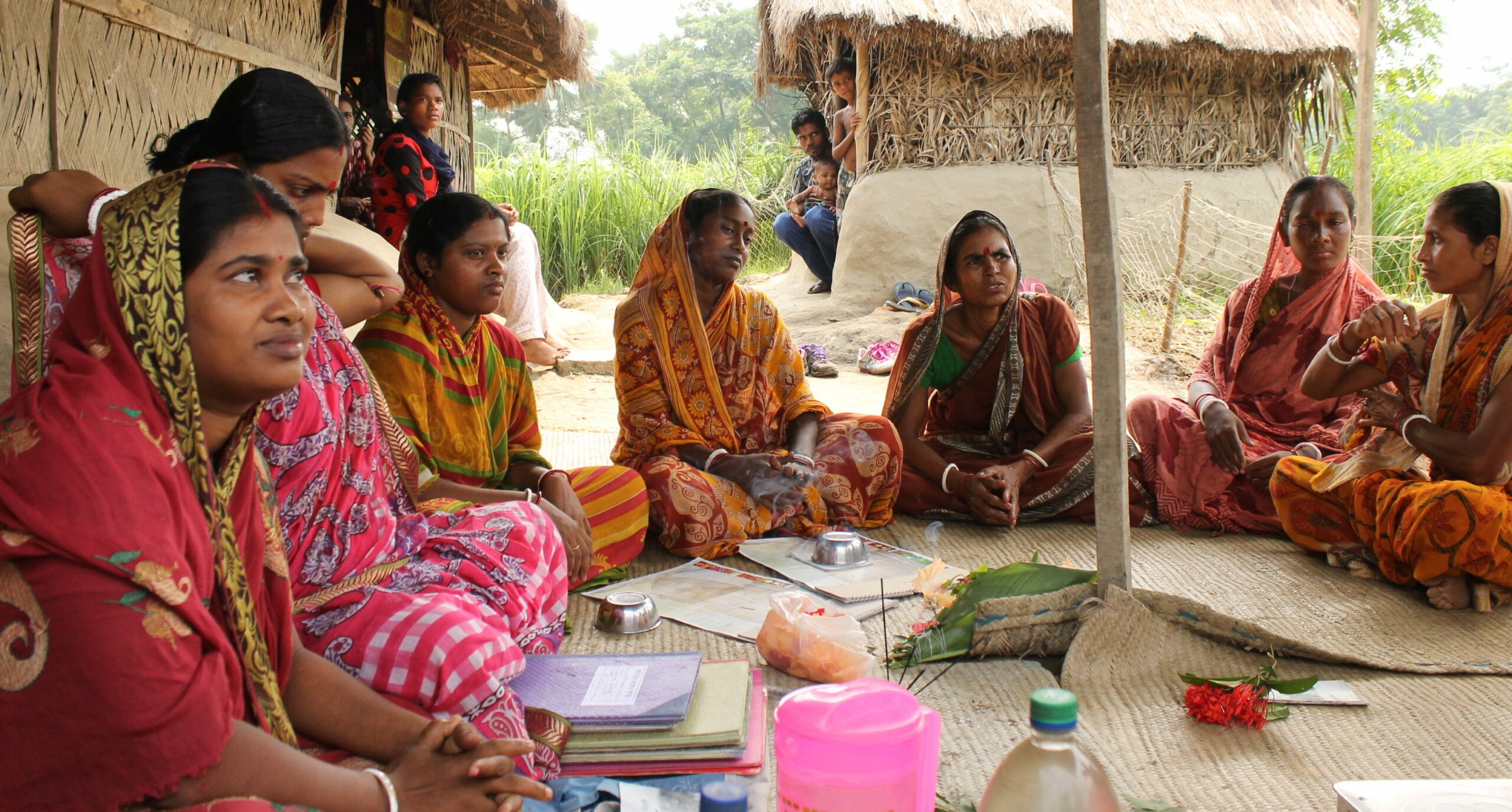The women of Jai Baba Loknath Self-Help Group (SHG) meet once a week in the shade of a large tarp beside the river that runs past their small village.
As the members begin to filter in, a stick of incense is lit at exactly 3:00pm. If the incense finishes burning before one of the 12 members arrives, she is fined five rupees for tardiness.
When the group was formed as part of Trickle Up’s program, they chose one of their members, Dipali Gayan, to act as treasurer. She opens the meetings by discussing the agenda and recording every member’s savings for the week. Before they joined their savings group, the women were often forced to take out loans from moneylenders with interest rates of 10% or more just to pay for their children’s education and healthcare. But now, they can take loans out from their group with only 2% interest rates, allowing members like Dipali to lease land for their businesses.
Being part of this savings group has allowed them to begin saving for their families’ futures, start businesses, access credit, and develop diversified livelihoods.
With help from Trickle Up and her SHG, Basanti Bir, another woman in the SHG, started her chicken-raising business 18 months ago and it’s taken off, growing from just a few chicks to over 40 chickens. Basanti’s not only a successful businesswoman, she’s also one of the group’s representatives tasked with facilitating connections to banks and government services.
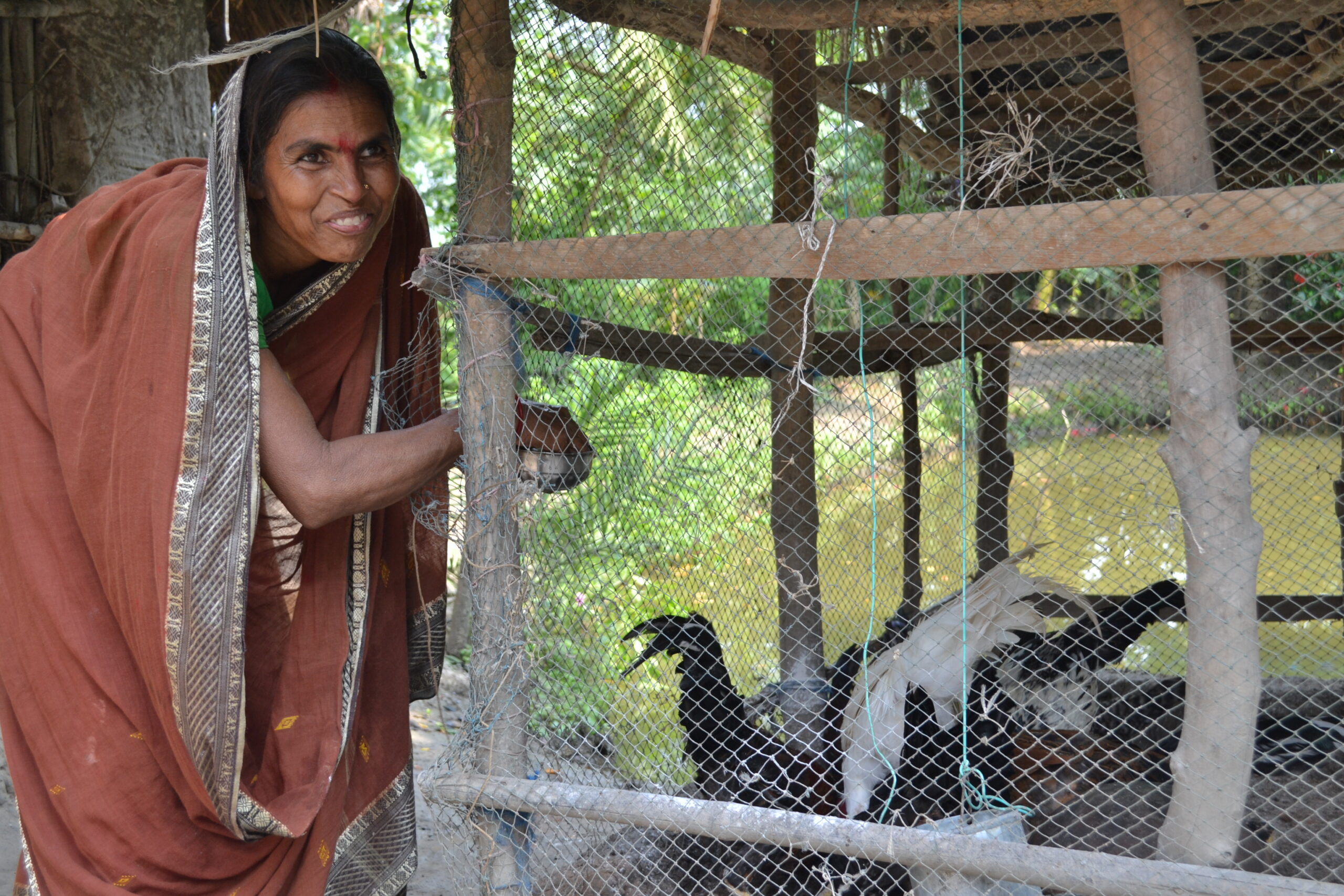
Kajol Sardar and her husband raise pigs and seafood, focusing on the tiger prawns that fetch a high price in the marketplace.
She began with just two pigs and has sold many pigs in the past 18 months. She currently owns eight, one of which is pregnant and will soon give birth to more.
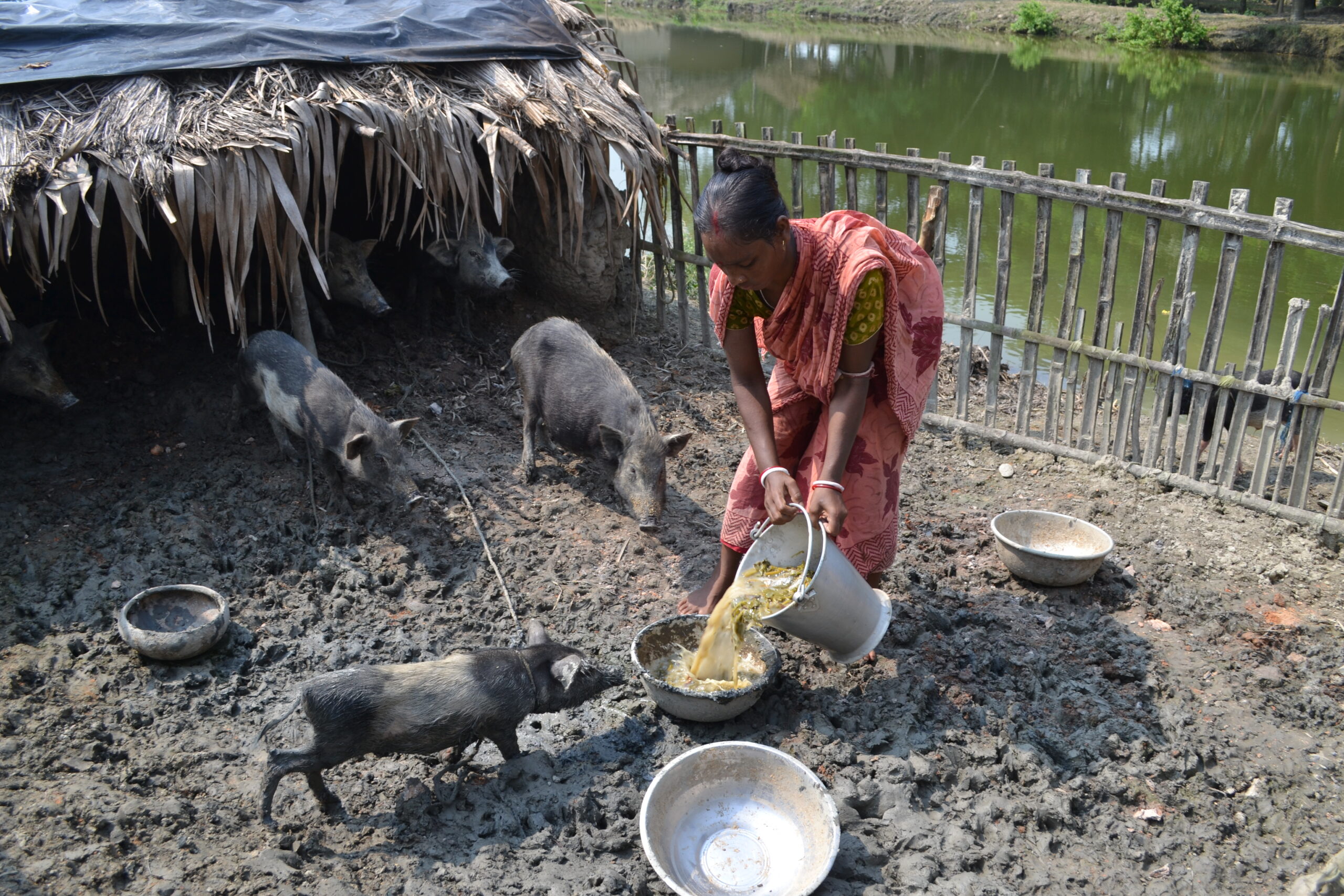
Dipali, the treasurer, opened a small store selling snacks and hygiene products out of her home.
Her shop is so successful that her family has expanded their business activities to include raising fish and goats and cultivating vegetables.
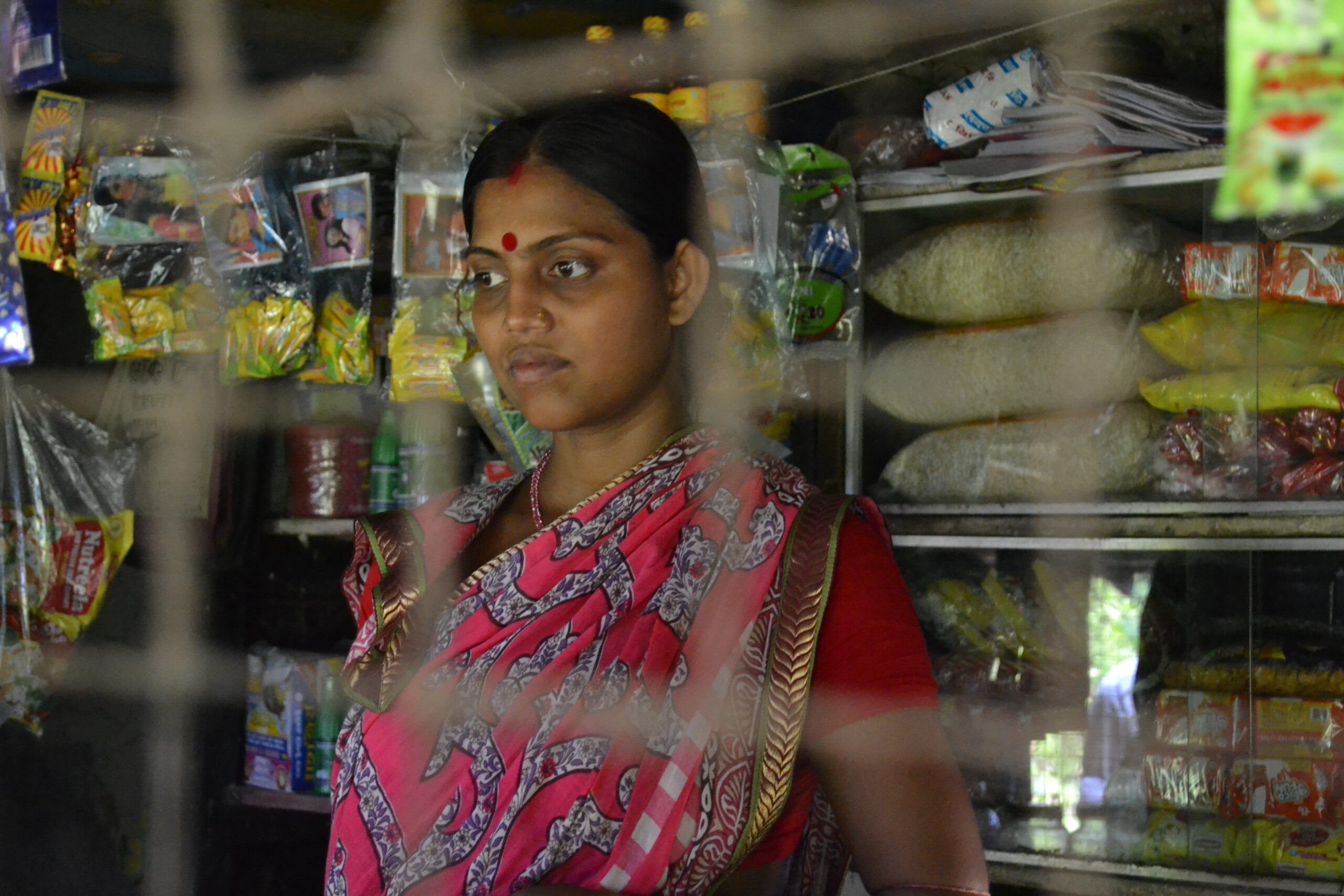
Dipali, who is six months pregnant with her second child is using her savings to help pay for her 7-year-old son’s education and to access better health services for her baby. Located just two doors down from the school, her home is buzzing with the sounds of children playing at midday. It’s then that her son runs home to say hello and give her a quick hug before running back to school. Watching him go, she beams.
Since many women in the group are determined to use their savings to improve their children’s health and futures, the group began using nutritional calendars in their meetings and coaching sessions.
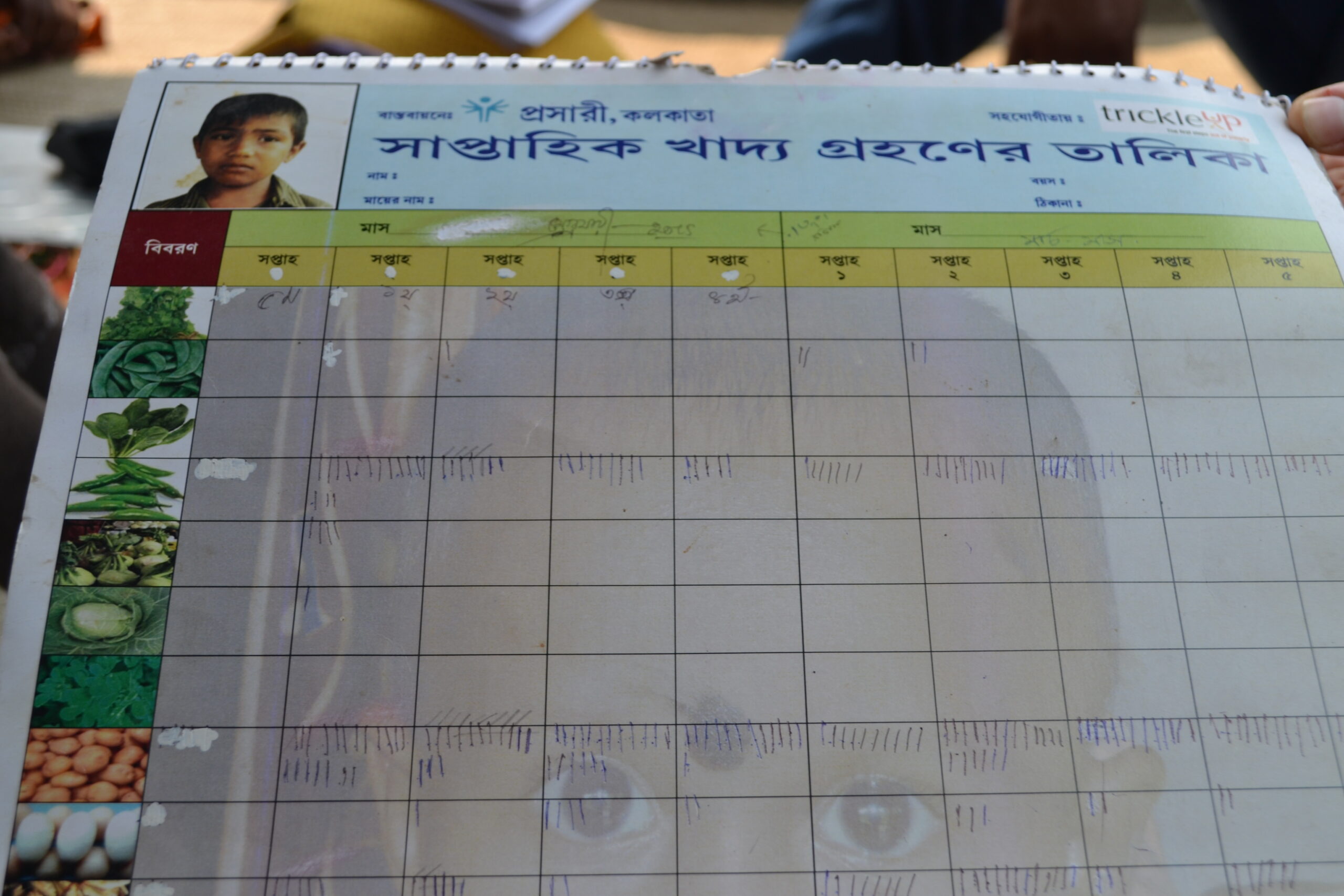
The women note at the beginning of each month what they would like to feed their children and how to save for certain foods that may be more expensive.
Each calendar features a picture of their child to motivate and remind them why they’re participating in this program.
Though the savings from the SHG have brought each family many benefits, the women have various ways of defining success. While one woman saw the diversity of her livelihoods as a major success, another looked forward to the day they might work together as a single producer to improve their bargaining power in markets and sell their produce at a higher price.
They all agreed that their success will continue to grow if they keep working together.
Jai Baba Loknath Swanirbhar Dal Self-Help Group in the Sundarbans, West Bengal, India
Family providers, partners, businesswomen

